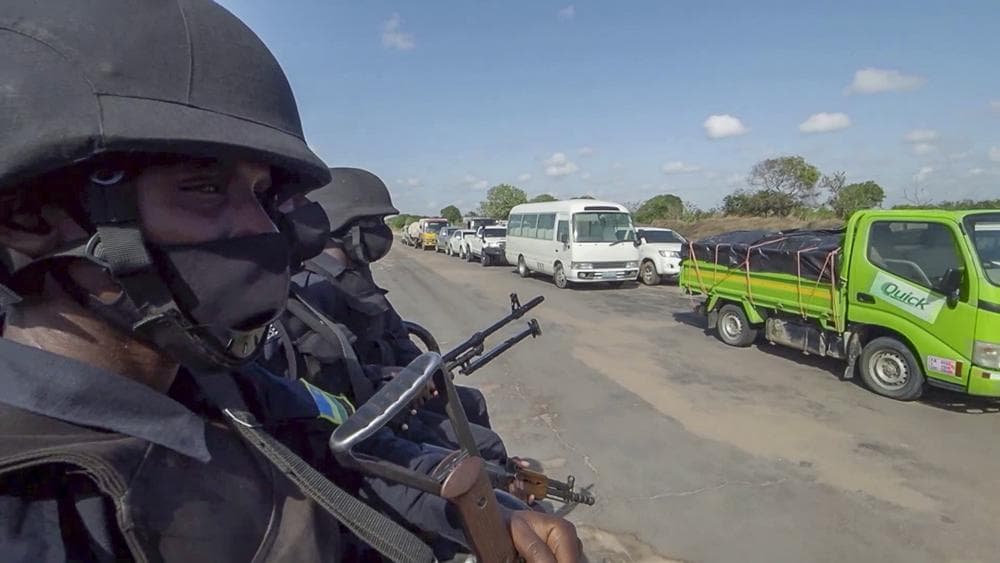YAOUNDÈ, Cameroon – A series of gruesome attacks by Muslim insurgents has hit the province of Cabo Delgado in Mozambique over the past few weeks.
Fighting broke out in the Cabo Delgado region of Mozambique in 2017 when a group calling itself al-Shabab — not linked to the Somali group of the same name – attacked towns in the region.
After the rebels seized the town of Palma in early 2021, troops from neigboring countries arrived in the country to help the Mozambican military.
Around 2,000 troops from eight Southern African Development Community (SADC) nations, known as the SADC Mission in Mozambique (SAMIM), were deployed on July 15, 2021. Rwanda, a non-SADC member, had earlier sent in 1,000 soldiers to Cabo Delgado, after an agreement with Mozambique.
However, a new offensive was launched by the insurgents during the summer, leading to the displacement of 80,000 people.
The insurgents are known for their brutal methods, including burning villages and beheading civilians, and at least 4,000 people have died in the conflict.
The International Organization for Migration estimates over 900,000 people have had to flee their homes since the conflict began.
RELATED: In Mozambique ‘sex was demanded in exchange for food,’ says Catholic entity
The Denis Hurley Peace Institute, an associate body of the Southern African Catholic Bishops’ Conference, on Friday said that there were “violent incursions, between Tuesday and Wednesday, all in villages administratively belonging to the district of Ancuabe, in the south of the province.”

The institute said several people were beheaded in late August outside several villages.
The statement further stated that at least 70 houses and a truck carrying corn were torched in the village of Nacuale on Aug. 30.
“The latest reports have once again reinforced the idea that insurgents have in recent times managed to regroup for new attacks that put the population and the Defense and Security Forces at risk,” the institute said.
Johan Viljoen, the director of the Denis Hurley Peace Institute Johan Viljoen, said the murders are not targeted attacks.
RELATED: Bishop in Cabo Delgado: ‘The attacks on the villages continue’
“The beheadings are carried out by the insurgents. It would appear that there is no specific target. Victims include Christians, Muslims and people from various ethnicities,” he told Crux.
He said he had spoken with many people displaced by the war and they tell him they believe “the war has nothing to do with religion, but that the aim is to drive them off their land so that the land can be given to multinational corporations and prospectors.”
“The indiscriminate nature of the beheadings supports this assertion -that the purpose of the attacks is to drive local populations off their land. This is not a religious war. It is about access to mineral wealth, oil and gas,” Viljoen said.
Cabo Delgado is the northernmost province of Mozambique. Although the country is 75 percent Christian, Cabo Delgado has a slight Muslim majority.
The two faiths have historically lived in peace, and the insurgency is blamed on the teachings of a Kenyan extremist.
However, the tensions in the region were made worse by the arrival of several multinational oil firms, who promised jobs and economic growth for the region, which never materialized.
“The authorities have not managed the situation well. Total [the French energy firm] said it would resume operations once the area is stable and [the displaced residents] have returned. Desperate to have Total return, the authorities – backed by President Ramaphosa amongst others – have been saying that the conflict is over and the internally displaced people (IDPs] should return,” Viljoen told Crux.
“The Catholic church leaders by contrast were saying that the area is not yet safe and that IDPs should stay where they are. We received reports of returning IDPs being attacked along the way, or even in their home villages after returning,” he said.
RELATED: Prelate says he’ll ‘never stop worrying’ about Mozambique conflict after transfer to Brazil
He said the security situation in Cabo Delgado was worsening, and areas such as Ancuabe, in the east of the province about 40 miles from the capital Pemba, are now being attacked.
“Attacks are spreading to the south and west. Even areas that until recently were considered to have been stabilized by Southern African Development Community and Rwandan troops – like Muidumbe and Macomia – are now being attacked,” Viljoen said.
Noting that the war was about land and mineral wealth, Viljoen said that “the poor and marginalized are being sacrificed on the altar of political and economic expediency.”













